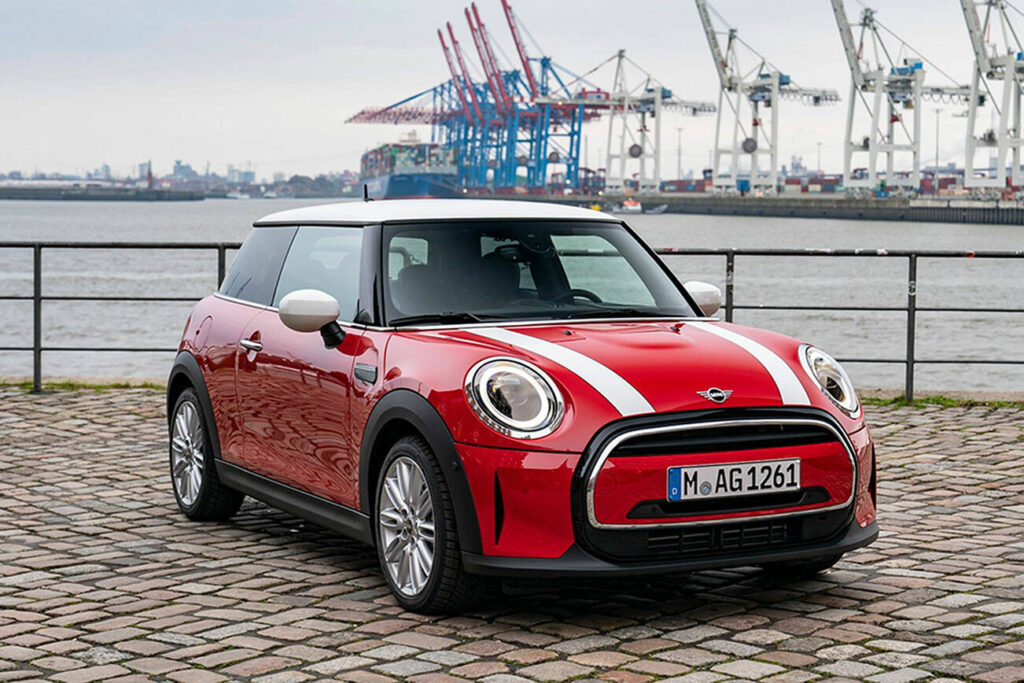
Mini Cooper Problems: The Ultimate Reliability & Common Issues Guide

Owning a Mini Cooper means embracing personality, punchy performance, and a timeless British-chic vibe. Yet, behind the iconic styling and go-kart handling, Mini Cooper reliability concerns and recurring mechanical problems are widely discussed among enthusiasts and prospective buyers.
We deliver a deep, comprehensive guide to real-world Mini Cooper problems, reliability patterns across generations, repair expectations, and proactive maintenance strategies. If you're evaluating a Mini Cooper purchase—or managing ownership—this is the authoritative resource you need.
Mini Cooper Reliability at a Glance
Despite strong engineering roots and BMW control, Mini Cooper longevity depends heavily on model year and maintenance. Earlier generations suffered from weak components and design flaws, while 2015+ models generally improved reliability.
| Generation | Years | Reliability Summary |
|---|---|---|
| R50/R53 | 2002-2006 | Known for transmission issues, steering pump failures |
| R56 | 2007-2014 | Timing chain “death rattle”, high oil use |
| F56 | 2015-Present | Better reliability, modern tech, fewer major failures |
Most Common Mini Cooper Problems
Automatic Transmission Failure
Automatic gearbox failure appears most frequently in first-generation Minis, especially continuously variable transmissions (CVT).
Symptoms
- Slipping gears
- Jerky acceleration
- Slow response when shifting
Key Insight: Repairing or replacing a Mini automatic transmission can exceed the value of older models. Many owners convert to manual to avoid this long-term risk.
Clutch Failure
Manual Mini Coopers are engaging to drive, but clutches can wear prematurely—especially with city driving or aggressive shifting.
Signs of Mini clutch wear
- Difficulty selecting gears
- Clutch pedal vibration
- Burning smell under load
- Slipping under hard acceleration
Average repair cost: High due to engine-out labor procedure.
Timing Chain Rattle (“Death Rattle”)
Common on R56 generation (2007–2014), the N14/N18 engines are notorious for timing chain tensioner failures.
Symptoms
- Rattling on cold starts
- Engine misfires
- Power loss
Ignoring the noise can lead to catastrophic engine failure. Early intervention prevents costly damage.
You may be interested in reading Honda Jazz Boot Won’t Open: Causes, Fixes & Expert Tips
Honda Jazz Boot Won’t Open: Causes, Fixes & Expert TipsCoolant Leaks & Water Pump Failure
Plastic thermostat housings and water pumps commonly develop leaks, risking overheating and engine warping.
Warning signs
- Sweet coolant smell
- Rising temperature gauge
- Coolant puddles below vehicle
Mini cooling systems benefit from proactive inspection every 30k–50k miles.
Electric Power Steering Pump Failure
Early models (especially up to ~2010) experienced EPS pump failure, sometimes causing loss of power steering without warning.
Red flags
- Sudden stiff steering
- Whining noises from engine bay
- Intermittent steering assist
Thermostat Housing Cracks
Mini uses composite plastic housings prone to warping with heat cycles.
Consequences
- Coolant leakage
- Engine overheating
- Cabin heat issues
Upgraded housing replacements improve longevity.
Carbon Buildup on Valves (Direct Injection Engines)
A design trade-off of direct-injection turbo engines: carbon buildup on intake valves.
Symptoms
- Rough idle
- Lower fuel economy
- Loss of power
- Check engine light
Walnut blasting every 60k miles improves smoothness and longevity.
Turbocharger Issues
Turbocharged Mini Cooper S models can experience:
You may be interested in reading Honda Jazz Boot Won’t Open: Causes, Fixes & Expert Tips
Honda Jazz Boot Won’t Open: Causes, Fixes & Expert Tips Honda Jazz CVT Gearbox Problems: Causes, Fixes, and Prevention Guide
Honda Jazz CVT Gearbox Problems: Causes, Fixes, and Prevention Guide- Wastegate rattle
- Turbo oil seal leaks
- Whining noise at boost
Early intervention prevents total turbocharger failure.
Engine Oil Leaks & High Consumption
Common leak points:
- Valve cover gasket
- Oil filter housing gasket
- Rear main seal
These engines also consume oil by design, requiring frequent checks.
Other Minor Mini Cooper Issues
- Loose or sticky clutch pedal
- Gearbox synchro wear (manuals)
- Fuel pump failure
- Exhaust rattles
- Window regulator failure
Prompt attention prevents cascading repairs.
Model-Year Reliability Breakdown
Best Years
- 2015–2022 (F56) – Most reliable period
- 2019–2023 updated engines
Worst Years
- 2007–2013 (R56) – Timing chain, carbon buildup, high oil use
- 2002–2006 CVT models – Transmission failures
Mini Cooper Repair Costs
| Component | Average Cost |
|---|---|
| Timing Chain | $1,200 – $2,200 |
| Clutch | $1,100 – $2,000 |
| Water Pump & Thermostat | $600 – $1,200 |
| Power Steering Pump | $800 – $1,500 |
| Turbocharger | $1,800 – $3,200 |
Mini Cooper Pros & Cons
✅ Pros
- Unique styling & customization
- Outstanding handling
- Premium cabin quality
- Efficient turbo engines
- Strong enthusiast community
❌ Cons
- Expensive maintenance
- Common mechanical faults in earlier models
- High labor cost (BMW-based systems)
- Limited space for families
Resale Value Performance
Mini retains value better than many sporty compact competitors, but depreciation is steep in first 5 years.
| Time Owned | Value Retained |
|---|---|
| 5 years | ~50% |
| 10 years | ~27% |
Well-maintained Minis with documented service sell significantly faster.
How to Avoid Expensive Mini Repairs
- Service on schedule—don’t exceed intervals
- Use premium fluids and OEM parts
- Check oil every 500–1,000 miles
- Replace timing components preventively (R56 models)
- Flush cooling system periodically
- Walnut blast intake valves on DI engines
Conclusion
Mini Cooper ownership is rewarding for drivers who prioritize style, agility, and personality—but it demands proactive maintenance and awareness of known trouble areas. Modern Minis deliver significantly better durability than early generations, making newer models the smart buy for long-term confidence.
FAQs
Do Mini Coopers last long?
Well-maintained models routinely exceed 150k miles. Neglected engines fail earlier.
Which Minis are the most reliable?
2015+ F56 models, especially with documented dealer service.
Are Mini Coopers expensive to maintain?
Yes—BMW engineering means high parts and labor costs.
How often should I check the oil?
Every 1,000 miles or monthly, whichever comes first.
Should I avoid older Minis?
Pre-2014 models require extra scrutiny, especially timing chain & transmission.
You may be interested in reading Honda Jazz Boot Won’t Open: Causes, Fixes & Expert Tips
Honda Jazz Boot Won’t Open: Causes, Fixes & Expert Tips Honda Jazz CVT Gearbox Problems: Causes, Fixes, and Prevention Guide
Honda Jazz CVT Gearbox Problems: Causes, Fixes, and Prevention Guide Honda Jazz Jerking When Accelerating: Causes, Fixes, and Prevention
Honda Jazz Jerking When Accelerating: Causes, Fixes, and PreventionIf you want to know other articles similar to Mini Cooper Problems: The Ultimate Reliability & Common Issues Guide you can visit the category Common Problems.
Leave a Reply






More content of your interest